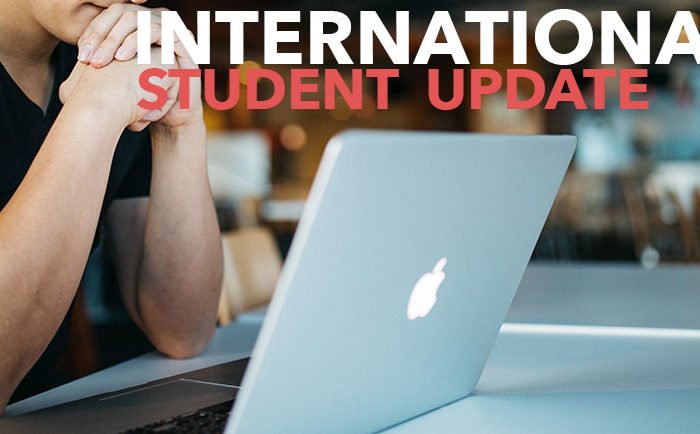Popular tags:
10
Apr
UPDATES FOR INTERNATIONAL STUDENTS COMING FOR MAY & JUNE INTAKE/ SPOUSAL & COMMON-LAW APPLICATION REFORMS
Posted by KAN Team
Comments Off on UPDATES FOR INTERNATIONAL STUDENTS COMING FOR MAY & JUNE INTAKE/ SPOUSAL & COMMON-LAW APPLICATION REFORMS
International students now eligible for PGWP with online courses
International students who are currently in possession of a valid study permit or were approved for one prior to March 18 2020 are exempted from the existing travel restrictions (meaning you can come to Canada). However, if your study permit was approved after March 18 2020, you are NOT exempt from the travel restrictions until June 30.
You’ll first need to pass a health check conducted by the respective airlines you are travelling with to board. Any person showing symptoms of COVID-19 shall not be allowed to enter Canada by air. Upon arrival, you must mandatorily isolate yourself for 14 days even if you have no symptoms.
Online Course Work Will Not Mean Ineligibility For International Student Graduates Seeking Canadian Work
Due to the pandemic, nearly all institutions have moved in-class courses to an online-only format. No need to fret, as the IRCC has made it clear that this won’t affect your eligibility to apply for a PGWP (Post Graduate Work Permit). What’s more relieving is that students who are slated to start in May or June can complete up to 50% of their program while outside Canada if they are not able to reach sooner.
Canada Still Accepting Spousal Immigration Applications Despite Coronavirus
The federal government has announced that they will continue to accept and process both spousal and common-law sponsorship applications for partners either in Canada or abroad. However, there are a few key reforms to pay attention to:
1. Intake of incomplete applications
You can hand in an incomplete application and still start the process. All you need to do is provide a detailed letter explaining why there is a delay in submitting the other documents due to COVID-19 delays. This is applicable when filing for new spousal or common-law partner sponsorship applications. Additionally, on top of the initial 60 days to complete the applications, IRCC officers have been instructed to provide an additional 90 days deadline to hand in the remaining documents.
2. Collecting social assistance may not make you ineligible to sponsor
It is important to know collecting which form of social assistance would render one ineligible to apply for spousal or common-law sponsorship. Those of you who have been recently laid off and are receiving the following aids from the Government would still be considered eligible to sponsor your spouse or common-law partner.
- CERB
- Employment Insurance
- subsidized housing
- tax credits
- child care subsidies
- Provincial Benefits
3. Spouses and common-law partners exempt from travel restrictions
Immediate family members of Canadian citizens or Canadian permanent residents are exempt from the travel restriction in place that bans other foreign nationals from entering Canada till June 30 2020. Spouses and common-law partners are considered “immediate family members”, and so are allowed to enter Canada in the present scenario. It would greatly expedite their interaction with Immigration at the airport when they land if they have following documents:
- Marriage certificate or evidence of common law status
- Canadian Passport or Permanent resident Card
- Birth Certificate
- Other documents that demonstrate an immediate family connection
Paper and electronic versions of the above-mentioned documents are also accepted.
Canadian Immigration Processing Fees to Increase on April 30
By April 30 at 9 a.m. EDT, the new fee regulations shall come into effect. Completed applications received before April 30 shall be processed with the existing fee, however, those applications received on or after that time which do not include the correct fees shall be returned to the applicant as incomplete. Permanent Residence processing fee for the following applicants are going to be increased as follows:
- Principal applicants under the Economic Business Class (self-employed, start-up visa, Quebec entrepreneur, Quebec investor and Quebec self-employed) will need to pay $1575 instead of the $1050 earlier.
- Foe those in the economic non-business class will go up from $550 to $825. This will not be applicable to principal applicants and their families under the Caregivers program.
- The fees for spousal and common-law partners of all the economic classes shall bump from $550 to $825.
- Processing fee for dependent children of all the economic classes would become $225 instead of $150.
- A very minor increment from $490 to $500 is to be expected for the right of Permanent Residence.
The corresponding fees for PR cards, PR travel documents/certification or replacement immigration documents would remain the same. New fee amounts will be released in 2022 as per Consumer Price Index.



